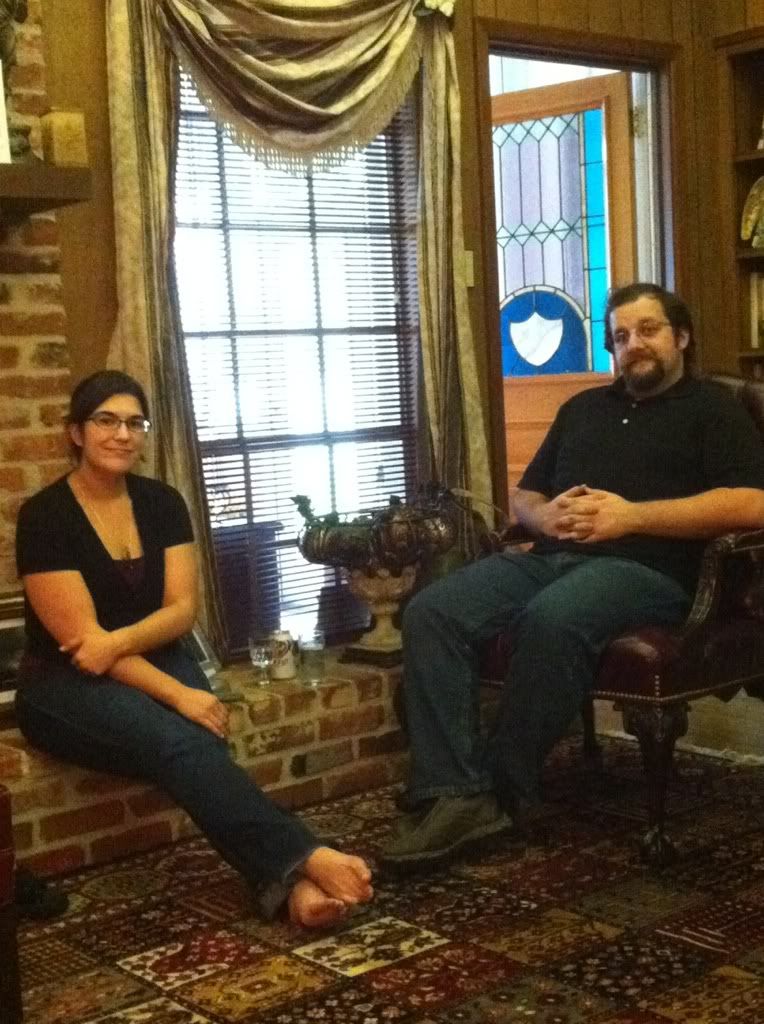More options
Export thread
M
makare
Cheesy she is so adorable!
Man that skyline never gets old. Pittsburgh love.Free tickets to last night's ballgame...



I got a new tattoo.

North_Ranger
Staff member
As promised, pictures from the Medieval Market. The year is 1385, and the political climate of Scandinavia is heating up. In the south, Queen Mother Margaret of Denmark is pushing her fifteen-year-old son King Olaf to be elected the King of Sweden, thus uniting the two kingdoms under a single crown. There are those who oppose such plans, of course: the current King of Sweden, Albrecht of Mecklenburg and his supporters are jockeying for support among the clergy and the nobility, even going so far as to issue privateer licenses to fight the Danes. Also in opposition are the powerful merchant cities of the Hanseatic League in northern Germany, fearing for their trade privileges and bargaining power against such a rising power bloc.
In the province of Österland ('the Eastern Land') and its foremost city of Turku (or Åbo in Swedish or Aboa in Latin), such clashes seem distant, however. It is once again time for kesäheikki, St Henry's Summer Market, and from all walks of life people are gathering at the Great Square.

From the Turku Castle arrives undoubtedly the most feared man of the land, castellan Bo Jonsson Grip, famed for both his vicious nature and his immense wealth, effectively owning more than half the kingdom. A stern supporter of the Mecklenburg faction, he is constantly seeking the upper hand over the other authorities in the city...

...such as Mayor Wisthus, somewhat of a self-proclaimed expert in city law and known for his constant visits to the brothel. Because of Turku's nature is a merchant town, it has drawn both Swedish and German merchants who make up the raati, the governing body. Wisthus is the Swedish mayor...

... and the foppish Jakob Kremptze is the German mayor. The two are in a constant contest of wills, trying to find out who truly "wears the pants" in the raati, much to the amusement of the crowd.

It's not only the temporal powers that are in a flux. Following the death of Bishop Johann III Westfalen, the newly-elected bishop Bero Balk (seen here on the right), has sizeable shoes to fill. Also, as being a mere electus yet (a bishop elect but not yet ordained by the Pope), his status is heavily questioned still. Alongside him stand (from the left) cathedral dean Maunu Suurpää, an elderly clergyman with some disturbingly liberal notions coming up in his advanced age; Freya Konradsdottir Ille, a most curious case of a female man-at-arms, suspected to have something to do with her illegitimate parentage (some say the dean himself fathered her in his younger and wilder days); and the rector of the cathedral school, Brother Laurens Penska who exemplifies the old saying: "Do as the priest says, not as the priest does". Despite being responsible for the teaching of young children, the future clergy of Turku, he himself is on the chopping block due to not only visiting the brothel but also fathering a bastard - and then admitting it.

Of course, not everyone in the Market is involved in some political scheme or plot. Some have come here to trade, and no small amount of coin exchange hands in the brothel, under the watchful eye of Old Saara, who makes sure that no man leaves the brothel with their purse full - in more ways than one. And keeping an eye on her girls is no small task: her daughter Anna is about to give birth, Maaria has been scratching her crotch so much that people are starting to suspect, and the sturdy German bather Birgitta is best known for effectively man-handling anyone who think they can tame her.

As the major event of the summer, the Market also draws in those seeking to settle grievances or build new alliances. One of these people is Andars Krouvel, a rälssi (lower-rank nobility who acquire their status by arming and maintaining cavalry) with a score to settle about an old land dispute. One that will make a lasting impression on many lives...

...even if they do not know it yet. One such pawn in the game of life is the potter, Juppe Bartolomeusson, who is not only known for his fine pottery but also for his constant drunkenness and its consequences. The gossip on the market is that Juppe has in years past stood trial for pissing againt the council house's wall in public, slandering both of the mayors by saying he has pleasured both of their wives "with his wonderful organ" - and once for unnatural congress, after drunkenly mistaking the sty of the neighbor's sow for his wife's bed.
(To be continued...)
In the province of Österland ('the Eastern Land') and its foremost city of Turku (or Åbo in Swedish or Aboa in Latin), such clashes seem distant, however. It is once again time for kesäheikki, St Henry's Summer Market, and from all walks of life people are gathering at the Great Square.
From the Turku Castle arrives undoubtedly the most feared man of the land, castellan Bo Jonsson Grip, famed for both his vicious nature and his immense wealth, effectively owning more than half the kingdom. A stern supporter of the Mecklenburg faction, he is constantly seeking the upper hand over the other authorities in the city...
...such as Mayor Wisthus, somewhat of a self-proclaimed expert in city law and known for his constant visits to the brothel. Because of Turku's nature is a merchant town, it has drawn both Swedish and German merchants who make up the raati, the governing body. Wisthus is the Swedish mayor...
... and the foppish Jakob Kremptze is the German mayor. The two are in a constant contest of wills, trying to find out who truly "wears the pants" in the raati, much to the amusement of the crowd.
It's not only the temporal powers that are in a flux. Following the death of Bishop Johann III Westfalen, the newly-elected bishop Bero Balk (seen here on the right), has sizeable shoes to fill. Also, as being a mere electus yet (a bishop elect but not yet ordained by the Pope), his status is heavily questioned still. Alongside him stand (from the left) cathedral dean Maunu Suurpää, an elderly clergyman with some disturbingly liberal notions coming up in his advanced age; Freya Konradsdottir Ille, a most curious case of a female man-at-arms, suspected to have something to do with her illegitimate parentage (some say the dean himself fathered her in his younger and wilder days); and the rector of the cathedral school, Brother Laurens Penska who exemplifies the old saying: "Do as the priest says, not as the priest does". Despite being responsible for the teaching of young children, the future clergy of Turku, he himself is on the chopping block due to not only visiting the brothel but also fathering a bastard - and then admitting it.
Of course, not everyone in the Market is involved in some political scheme or plot. Some have come here to trade, and no small amount of coin exchange hands in the brothel, under the watchful eye of Old Saara, who makes sure that no man leaves the brothel with their purse full - in more ways than one. And keeping an eye on her girls is no small task: her daughter Anna is about to give birth, Maaria has been scratching her crotch so much that people are starting to suspect, and the sturdy German bather Birgitta is best known for effectively man-handling anyone who think they can tame her.
As the major event of the summer, the Market also draws in those seeking to settle grievances or build new alliances. One of these people is Andars Krouvel, a rälssi (lower-rank nobility who acquire their status by arming and maintaining cavalry) with a score to settle about an old land dispute. One that will make a lasting impression on many lives...
...even if they do not know it yet. One such pawn in the game of life is the potter, Juppe Bartolomeusson, who is not only known for his fine pottery but also for his constant drunkenness and its consequences. The gossip on the market is that Juppe has in years past stood trial for pissing againt the council house's wall in public, slandering both of the mayors by saying he has pleasured both of their wives "with his wonderful organ" - and once for unnatural congress, after drunkenly mistaking the sty of the neighbor's sow for his wife's bed.
(To be continued...)
Ice creaming it up!

Imported delicacies

Attachments
-
357.8 KB Views: 219
Nice to know there's an equivalent for my expensive desire to get my Penguin on...
Sky diving pics hooray! This is from my jump in April. Unfortunately I sprung for the Bluray, so they just do screencaps of that for the picture CD. 
The plane appears to be leaving without me...

Wow, we're certainly high up.

Lake Meade in the background. Hoover Dam is on the right.

Floating gracefully to the ground.


The plane appears to be leaving without me...

Wow, we're certainly high up.

Lake Meade in the background. Hoover Dam is on the right.

Floating gracefully to the ground.

You guys are all skydiving and doing medieval fair things and all kinds of neat stuff while I'm just eating ice cream and taking pictures of pop tarts! I feel so unadventurous!
figmentPez
Staff member
At least you're taking pictures. I feel so lazy for not contributing.
Said Cosplay man.
figmentPez
Staff member
My feelings of guilt tend to be highly irrational.Said Cosplay man.
Well, it was your fault that I had no coffee or milk at home this morning after all.
Terrik picture dump time!
A couple weeks ago I went to Zhang jia jie (张家界) in Hunan. It's one of the places that James Cameron 'lifted' (ha-HA) for the floating mountains in "Avatar" (1 of 3 actually...Zhang Jia Jie, Huang Shan and Guilin..all in China).
I went there with my girlfriend and her parents (all Hunan natives) to these beautiful mountains.
Also warning. This post contains...
SPIDERS

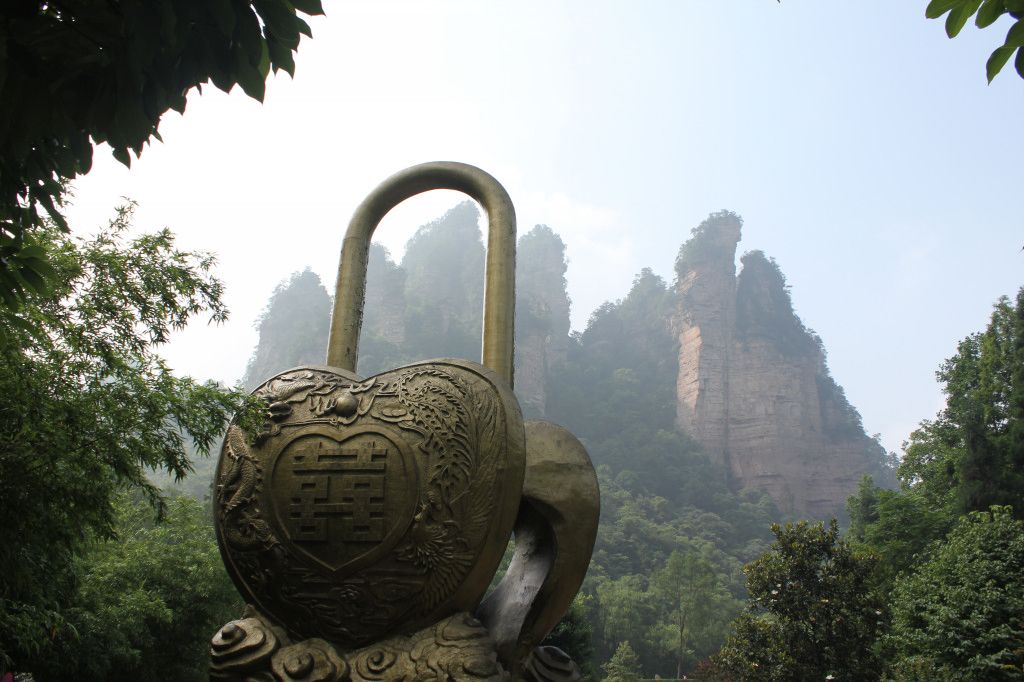

The water was just pristine. Drinkable, even.


Damnit. Spiders.



This guy was sitting right next to a giant toad. I waited 5 minutes to see if someone was gonna get ate.







They. Are. Everywhere.





This guy here? Crawling towards my face. I turned my head and BAM, there he is.


Weird mushroom..with...some...worm sticking out of it. It was really tiny and squirming everywhere.

Girlfriend getting dressed up


Huge inchworm.



Town near the mountains

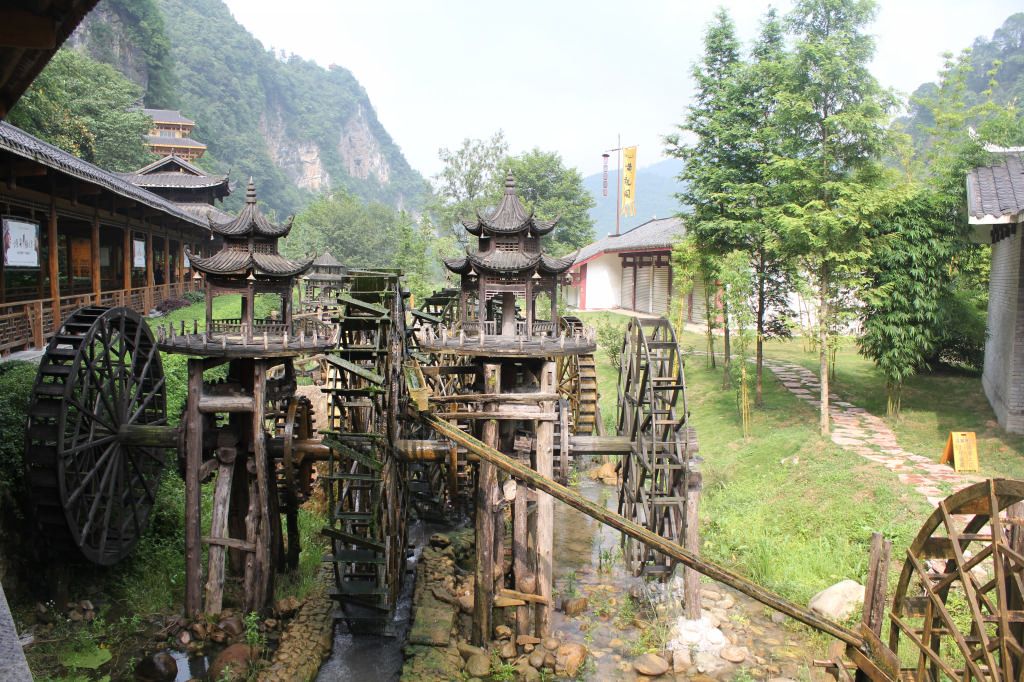
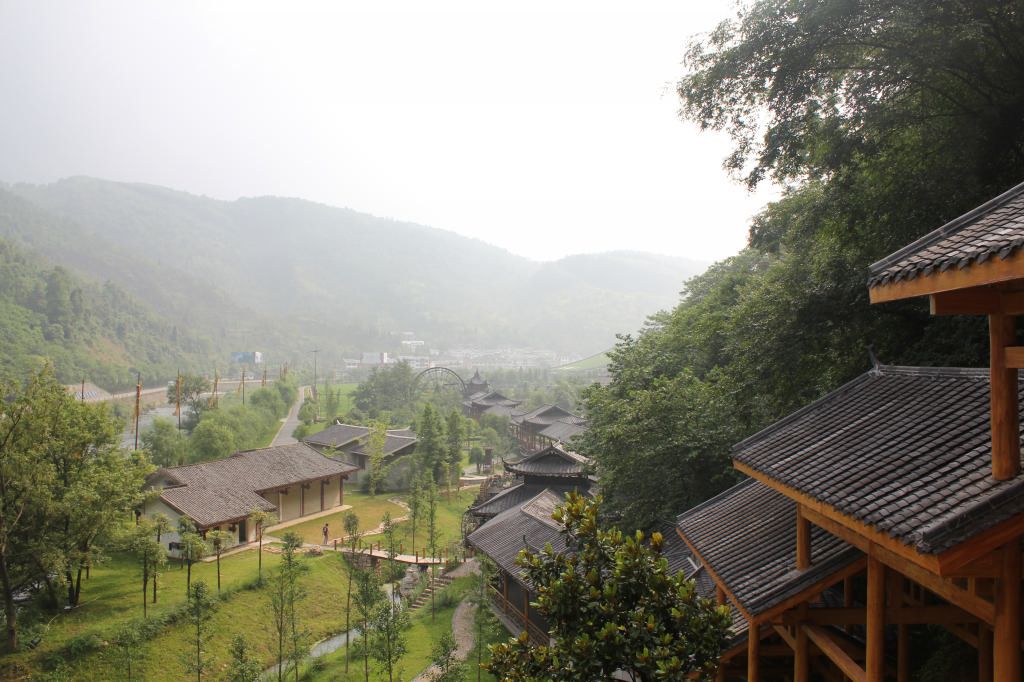
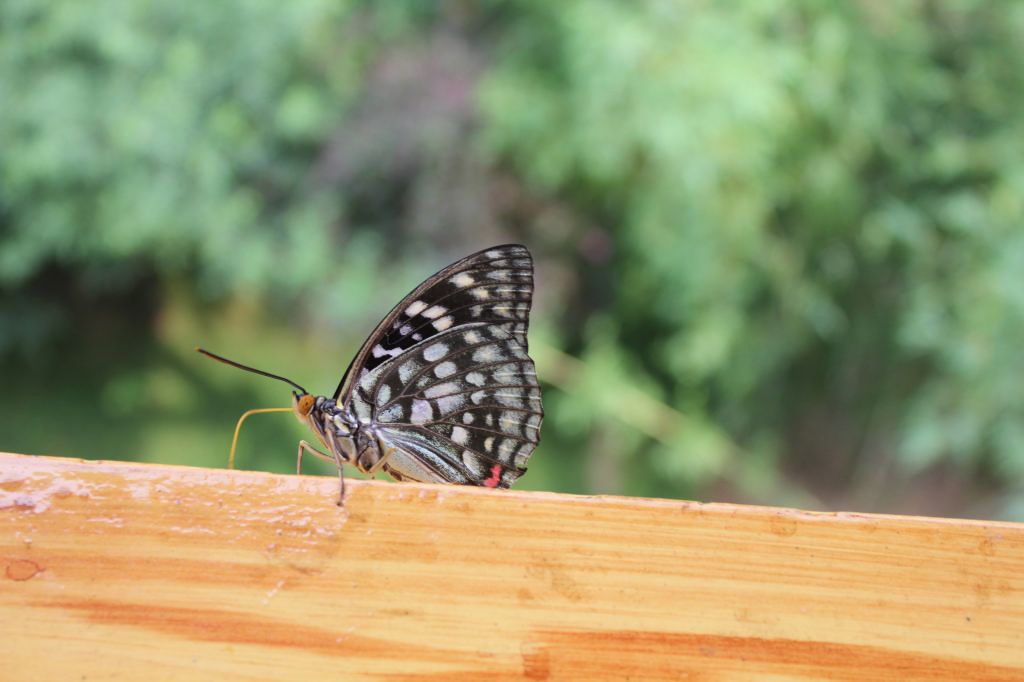
Yellow Dragon cave



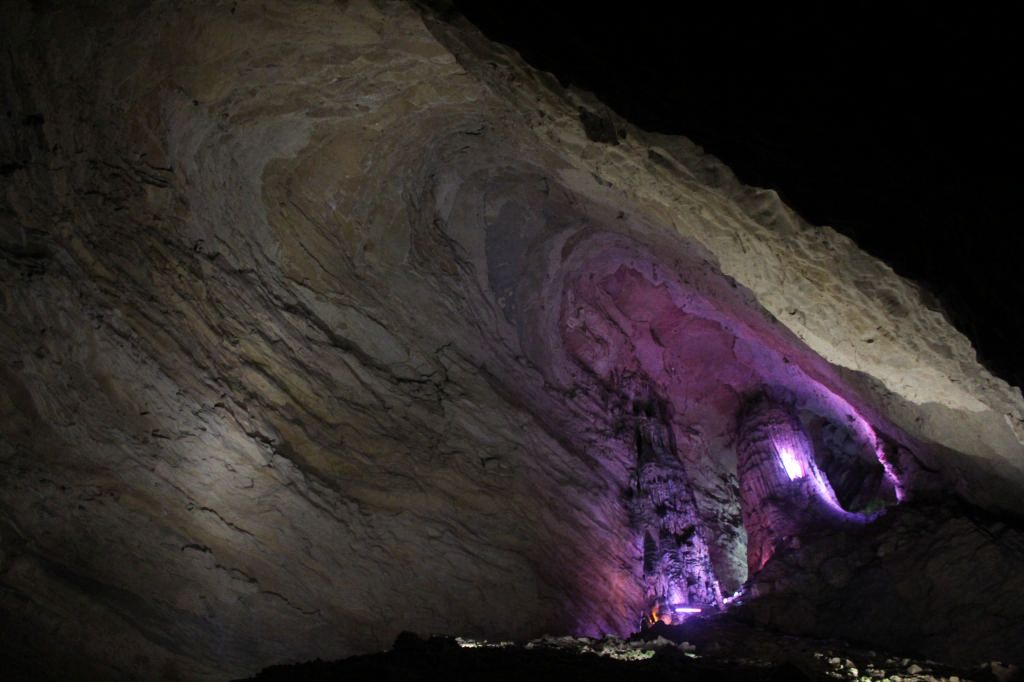








Mountain Temple
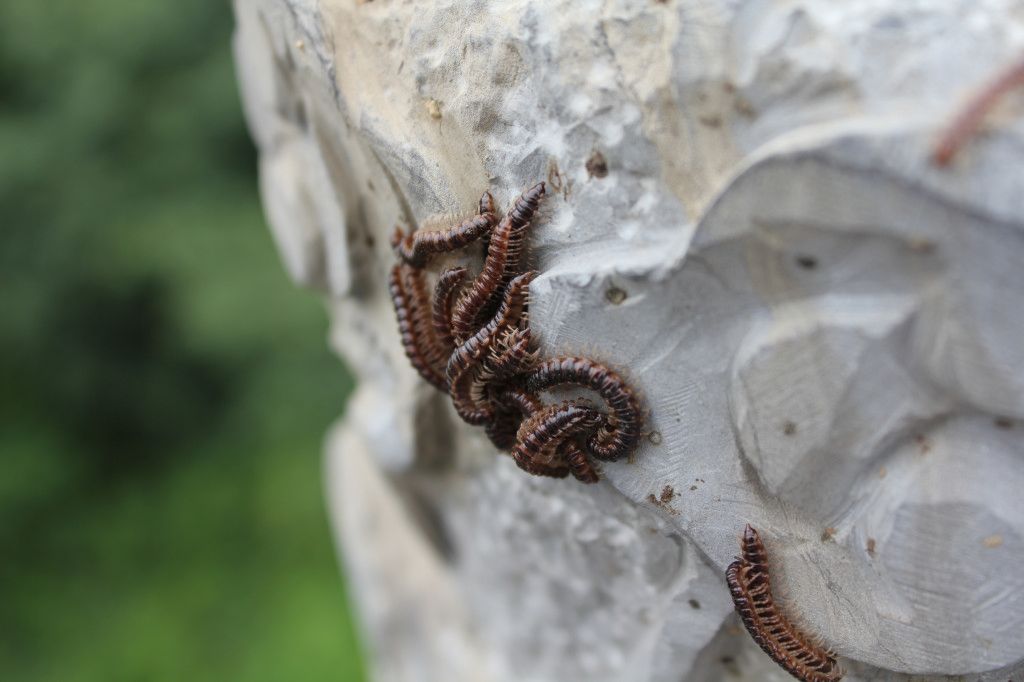
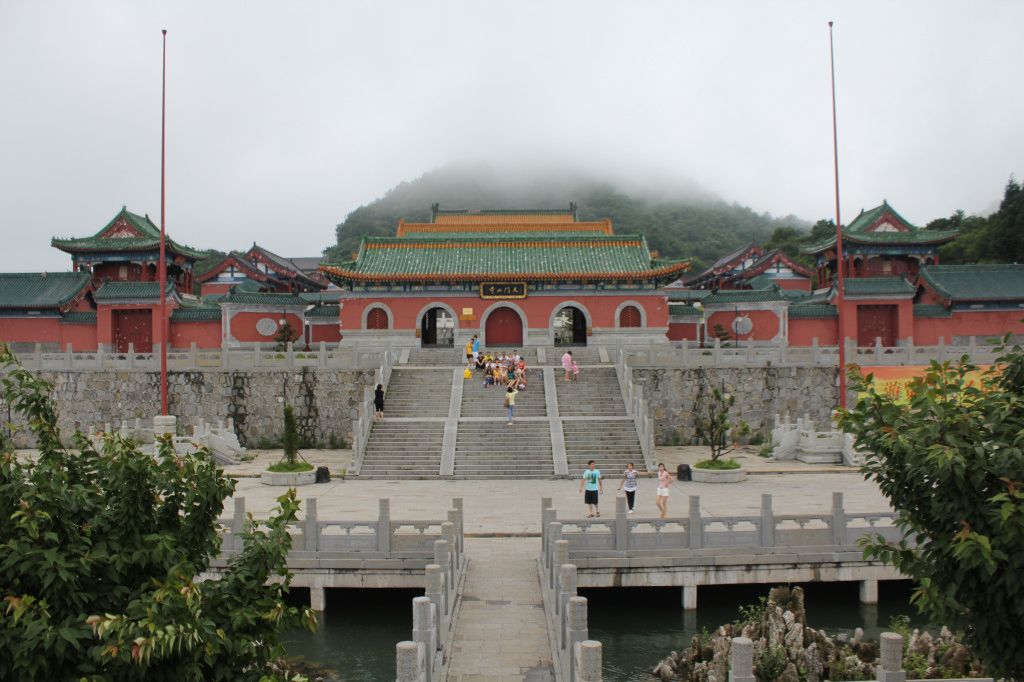

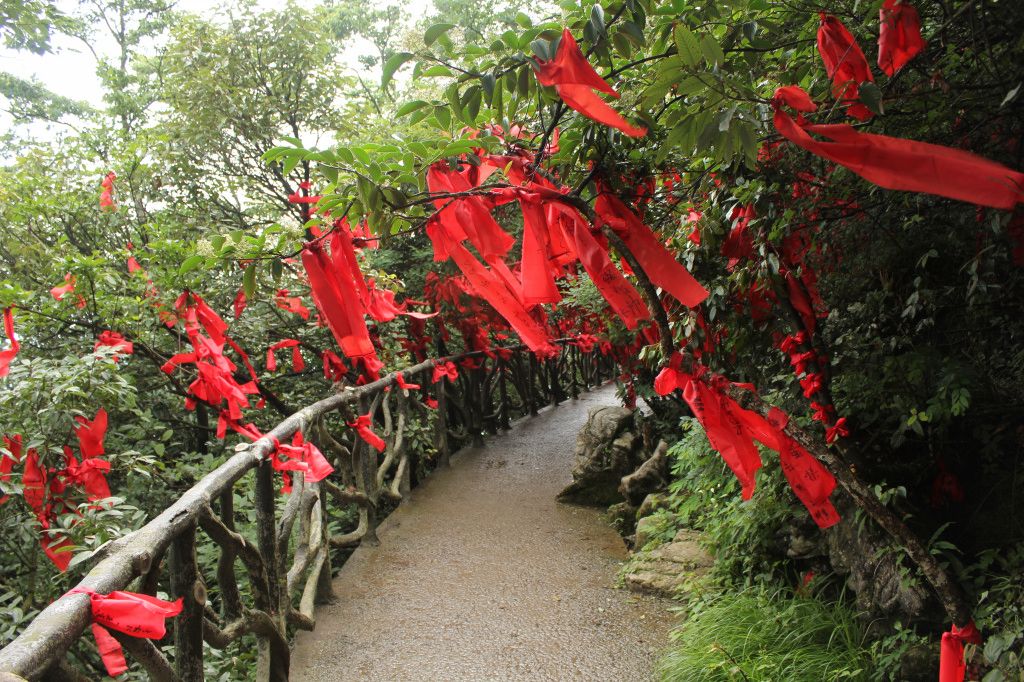

Zhang Jia Jie city as seen from the mountain



Apparently that French "Spiderman" scaled this thing.

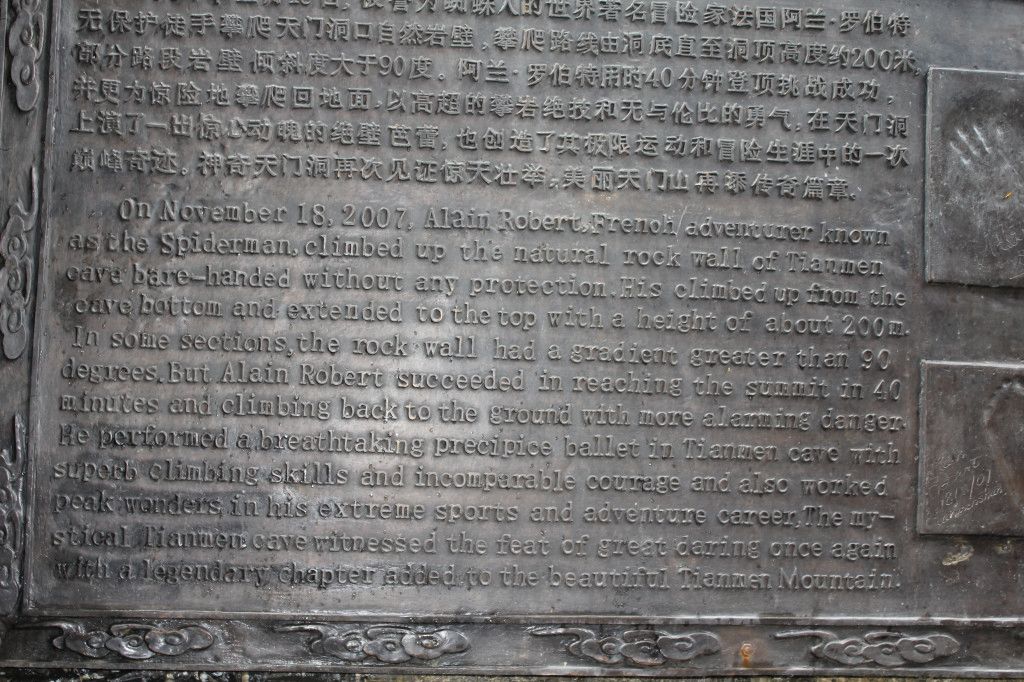

Village on the other side

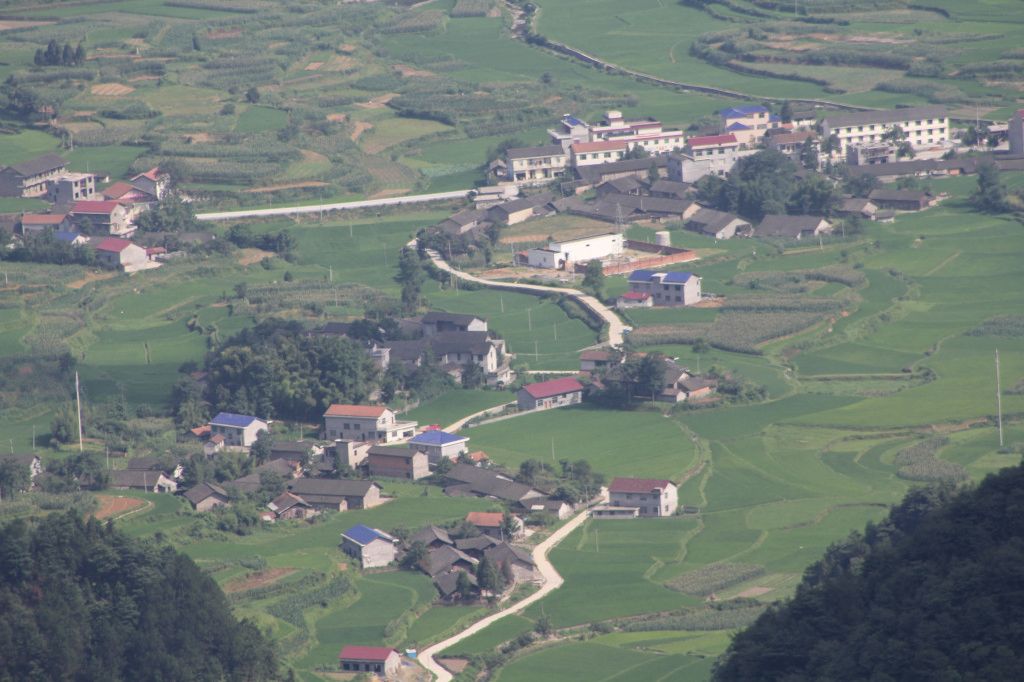


Workers on the mountain





A couple weeks ago I went to Zhang jia jie (张家界) in Hunan. It's one of the places that James Cameron 'lifted' (ha-HA) for the floating mountains in "Avatar" (1 of 3 actually...Zhang Jia Jie, Huang Shan and Guilin..all in China).
I went there with my girlfriend and her parents (all Hunan natives) to these beautiful mountains.
Also warning. This post contains...
SPIDERS



The water was just pristine. Drinkable, even.


Damnit. Spiders.



This guy was sitting right next to a giant toad. I waited 5 minutes to see if someone was gonna get ate.







They. Are. Everywhere.





This guy here? Crawling towards my face. I turned my head and BAM, there he is.


Weird mushroom..with...some...worm sticking out of it. It was really tiny and squirming everywhere.

Girlfriend getting dressed up


Huge inchworm.



Town near the mountains




Yellow Dragon cave












Mountain Temple





Zhang Jia Jie city as seen from the mountain



Apparently that French "Spiderman" scaled this thing.



Village on the other side




Workers on the mountain





figmentPez
Staff member
False advertising! You said there would be "spiders" plural, but there was only one picture of a spider in your post! I demand you amend it to arachnids as most of those beasties appear to be Opilones / Harvestmen and not spiders.
Amazing pictures, though. That's quite a trip.
Amazing pictures, though. That's quite a trip.
figmentPez
Staff member
Cool.
Terrik, your stuff, as always, leaves me jealous and impressed. The GF looking very cute as usual.
Your scenery and animal pictures are easily better than ALOT of stuff I see in magazines and alot of media. So thank you for your amazing talent for snapping and sharing with us.
Oh and that Spiderman thing? Just humbles you, ya know?
Your scenery and animal pictures are easily better than ALOT of stuff I see in magazines and alot of media. So thank you for your amazing talent for snapping and sharing with us.
Oh and that Spiderman thing? Just humbles you, ya know?
P
Philosopher B.
Yeah, Terrik, these pics are the bomb.
Meanwhile, in Barcelona...








